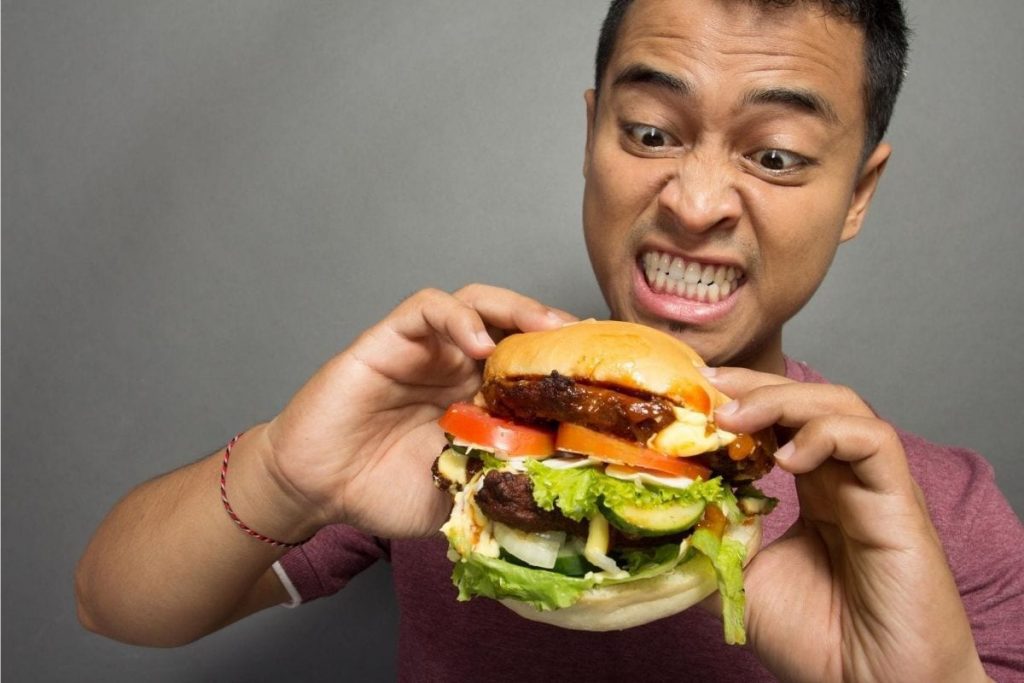How Many Food Related Decisions Do You Make Daily?
According to Brian Wansink (author of Mindless Eating, 2009) we make, on average, 250 food related-decisions every day. Every time we see food, we make an unconscious decision about whether to eat it or not. There are many ways to overcome this within our own homes. However when we are in the supermarket, cinema or cafes and restaurants it can be more difficult to make moderate choices. In this blog, I will outline some triggers for overeating and ways to overcome them. If you are interested in learning more about nutrition, check out our Nutrition & Health Coaching Course.
Aim to organise your home and perhaps work environment making over-eating a hassle, making it more difficult! If you do not see the food, then you do not have to make the unconscious decision on whether to eat it or not.
Here are some tips to consider when at home:
- Avoid buying junk food in the first place – if it is not there you cannot see it or eat it.
- Keep it out of sight, or hard to get at! If it must be in the house – remove it from your line of sight, therefore you will not have to make that decision to eat it or not.
- Avoid eating FOR pleasure – of course, eating can be a pleasure but be aware that high sugar, fat and salt foods stimulate the release of dopamine in the brain (associated with reward). These foods are addictive and unless you can eat a small amount mindfully, find something else that you can do for pleasure.
- Avoid making the ‘treat’ about food. That could simply be peace and quiet, sitting down with herbal tea and being able to finish it, watching a show without being interrupted, enjoying reading a book or listening to your favourite music.
- Take up a craft or hobby, such as knitting or art which are mindful activities requiring concentration.
What Influences How Much We Consume?
There are many factors that can influence how much we eat such as hunger, mood, being in the company of others or being alone, time of day. However, according to research by Brian Wansink, the most influential factor is portion size. He found that when he increased the size of bowls, plates and serving items, his study subjects increased how much they served themselves. Those with a larger bowl served themselves 31% more ice cream. When also given a larger scoop, subjects served themselves 57% more and ate it!
Wansink also showed that the larger the packet his subjects ate from the larger the portion they took. In the 1980s it was mostly only single-serve packets of sweets, crisps and chocolate available. Now food companies have king-sized, super-sized and family-sized portions. Oftentimes, these larger packets are consumed by one person. As Wansink proved, the larger the packet we eat from the more we will consume, and the food industry are very aware of this.
Consider the following practices to avoid overeating:
- Use a smaller plate – this one is a very simple but effective way to avoid overeating.
- Buy smaller packets or serve out a portion and put the packet away. If you must buy crisps or ice cream buy single-serve portions rather than a large bag or tub.
- Hara Hachi Bu; Eat like the Japanese ‘until you are 80% full’ OR you are not hungry any more – you do not have to feel overfull at the end of a meal. Put 20% less on your plate than you normally would, especially starchy carbohydrates (do not skimp on the veggies!) This also comes back to using a smaller plate.
- Serve a smaller portion of dessert. The first 2 mouthfuls are the most enjoyable, after that, we may be eating it because it is on our plate and you were told as a child to ‘clean your plate’.

Fail to Plan, Plan to Fail
- Develop a meal plan for the week. If necessary, also plan when you will make each meal. Create a schedule for eating – but also be flexible and remember if you are not hungry for a scheduled snack you do not have to eat it!
- Avoid allowing yourself to get to the stage of being ravenous and having no food easily available, again having snacks planned and ready will avoid giving in to the wrong foods.
Visualise It
- Mental rehearsal – Be aware of when you are most likely to overeat. Is it a certain time of day, it is when you visit someone, is it a particular meal each day, or are you prone to give in to special offers at the supermarket? Decide in advance of this situation what choice you will make and visualise it. Imagine you are in the situation, and picture yourself making the ‘right’ choice.
- For example, if you overeat in the evening time in front of the television, imagine yourself sitting down with a relaxing cup of tea and really enjoying each sip of that. Imagine yourself wanting to have a biscuit with it but making the decision not to. Picture how you feel in this situation, how you react and how good you will feel after having made the right decision.
Mindful Eating
- Take at least 20-30 minutes to eat a meal. Aim to eat at only 1 or 2 places in the home, while seated. Focus on eating only when you feel hungry. Remember to enjoy your meal by eating slowly and chewing well. Avoid distractions such as watching TV, sitting at the computer, driving or playing on your phone.
- Wait 10 – 20 minutes before taking seconds – get in touch with your body’s hunger and satiety signals, it takes that long for the stomach to tell your brain it is full!
In the Supermarket
As mentioned the food industry plays on our tendencies to crave sugar, fat and salt as well being strongly influenced by portion sizes. Supermarkets also play on our senses by having their freshly baked bread & pastries by the door as we walk in and snacks & confectionery beside the checkouts. Here are some considerations when grocery shopping:
- Avoid going to the supermarket when you are hungry
- Aim to have a shopping list and stick to it
- Do not be fooled by 2 for 1 specials on packets of biscuits and tins of chocolates, these specials are always available
- Perhaps consider buying online to prevent impulse buying
A Word on Alcohol
The recommendations for women are to have a maximum of 2-3 units per day and men a maximum of 3-4 units, with a maximum of 14 units per week for both men and women. Many can fall into a bad habit of drinking excess alcohol so here are some ways to avoid this:
- Avoid drinking alcohol while preparing food as this is often done mindlessly, for thirst or even for hunger.
- Wait until you sit down to enjoy a glass with your meal or even wait until after
- Enjoy alcohol mindfully. Enjoy the aromas of the wine. Like dessert the first few tastes can be the most enjoyable, so serve a small glass or have a bottle of beer rather than a pint.
- Buy smaller wine glasses eg 125 ml.
- Buy smaller wine bottles eg 187 ml rather than opening a full bottle

Bringing your awareness to the factors that influence your eating behaviours is the first step to addressing overeating. Next, plan ahead, use the practical ideas above and be prepared to avoid the triggers or know what to do when you are faced with them.
Overeating is always a decision, nobody forces your hand to pick up food and put it into your mouth (The Art and Science of Rational Eating, 1992)











